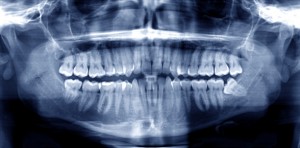Top 4 Wisdom Tooth Problems
Wisdom teeth extraction can correct or even prevent serious dental problems.

Pain
Wisdom teeth have great potential to cause pain. First of all, as they erupt through the gums they often cause aching pains. Secondly, because wisdom teeth are so hard to clean, they also present the risk of dental pain from cavities and gum disease.
Impaction
When wisdom teeth fail to erupt fully, they are said to be impacted. The gum tissues surrounding an impacted wisdom tooth will not be closed up into neat little gum pockets like they are around normal teeth. Instead, there may be deep fissures or flaps in the gums that can serve as inlets for bacteria to find their way deep into the tissues of the jaw. This puts impacted wisdom teeth and the tissues surrounding them at serious risk of infection. Adjacent teeth and nerves can also be negatively affected.
Bite Problems
The average person’s mouth is really only designed to hold 28 teeth. When four more wisdom teeth attempt to crowd into the mouth, this can push other teeth out of alignment, resulting in an uncomfortable bite. Bite problems may eventually lead to jaw pain as well as increased wear on misaligned teeth.
Aesthetic Problems
The overcrowding typically caused by wisdom teeth will also interfere with the look of your smile. This problem can be particularly frustrating if you have already had orthodontic treatment to straighten your teeth. You will have to choose between enduring nightly pain as your retainers struggle to keep the teeth at bay or simply letting your teeth become crooked.
To Extract or Not To Extract?
Due to the risk of the above problems, many patients opt to get wisdom teeth extraction as a preventative measure. After all, if the teeth are not allowed to erupt at all, they can’t change your bite, ruin your straight teeth, or cause pain or infection. The tradeoff is that unerupted teeth are a bit more difficult and more expensive to extract because the gums must be opened in order to reach them. The best time to get wisdom teeth extraction is generally considered to be during the teen or young adult years, before the roots of the teeth have had time to become fully formed.
If you prefer a less invasive approach to your dental care, you would probably want to wait until your wisdom teeth caused a problem before having them extracted. If you choose this option, bear in mind that you must act fast at the first sign of pain or crowding to minimize the teeth’s impact on your oral health.




